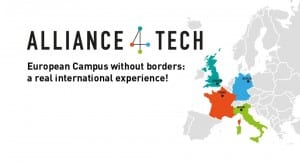Ask GEO: Tom Windle, Senior Partnerships Manager (East and South East Asia)
By Sophie Vinter, on 29 November 2016
Tom is GEO’s Senior Partnerships Manager for East and South East Asia. Here he tells us more about his work and UCL’s recent activity in both regions.
What is your role in GEO?
I develop and manage the portfolio of existing and potential partnerships for UCL in East and South East Asia, in line with UCL’s Global Engagement Strategy.
UCL has some really fascinating partnerships in both regions – from the UCL Institute of Education Confucius Institute leading the £10m Department for Education-funded Mandarin Excellence Programme, to UCL School of Life and Medical Sciences collaborating with the HRH Chulabhorn College of Medical Science on widening access to healthcare in Thailand.
You recently returned from a visit to China, led by Provost. How did the trip go?
The China visit went very well, incorporating visits to university partners as well as to the Chinese Ministry of Education, Chinese Academy of Sciences and the British Ambassador. UCL has been enjoying a deeper strategic partnership with Peking University (PKU) and during the trip we launched the Beijing International MBA – a collaboration between PKU’s National School of Development and UCL’s School of Management. The agreement represents a shared commitment that our two institutions have to collaborate and have a greater impact.
At Hong Kong University, UCL’s Vice-Provost Research announced a call for collaborative research proposals that address UCL Grand Challenges, under the new three-year HKU-UCL Global Strategic Partnership Fund. The purpose of this funding is to provide the necessary initial support to enable HKU and UCL academic staff to enhance existing collaboration or to pursue new, multilateral or cross-disciplinary research projects. This will complement UCL’s Global Engagement Funds in supporting grassroots international partnerships development across all UCL faculties.
It was also very exciting launching the Campaign for UCL in China. We have an enthusiastic alumni network across China and the campaign is proving a great way to engage them in supporting the ongoing work of UCL’s diverse academic and student body to work with partners to address some of the biggest challenges we face in the 21st century.
How can people keep up to date with UCL’s activity in East and South East Asia?
UCL’s collaborations in both regions are very varied, ranging from academic partnerships with overseas universities to engagement with governments, funding bodies and corporate partners.
Our regional networks, led by Director Katherine Carruthers (Pro-Vice-Provost, East Asia) and Professor Nicholas Phelps (Pro-Vice-Provost, South East Asia) are the best way to keep up to speed in terms of UCL’s collaborations there and funding opportunities. You can sign up here.
There are some great initiatives for students in both regions too. For example, the Yenching Academy at PKU is currently inviting applications from UCL students to spend a year in Beijing doing a fully funded Master’s programme in China Studies – an incredible opportunity.
What are you working on at the moment?
I’m currently preparing for a delegation visit to Australia in December, led by the Vice-Provost International Dame Nicola Brewer, which will take in visits to various partners and stakeholders in three cities: Brisbane, Sydney and Adelaide.
UCL Engineering enjoys a continuing strong partnership with the Future Industries Institute at the University of South Australia (UniSA), focusing on education and research in the sustainable management and use of minerals, energy and natural resources. This year, the collaboration launched a new Post-Graduate Taught MSc Programme on Global Management of Natural Resources. The upcoming visit will be a great opportunity to touch base with our colleagues in Australia and discuss our ongoing and upcoming collaborations.
Contact Tom on:
t.windle@ucl.ac.uk
+44 (0)20 3108 7784 / internal 57784
 Close
Close



